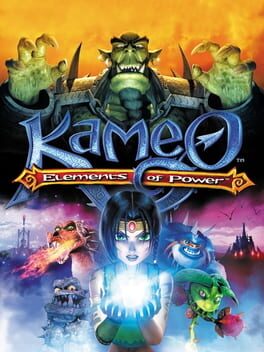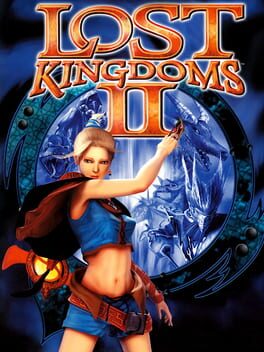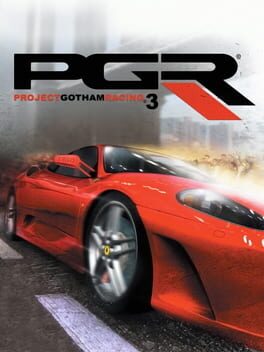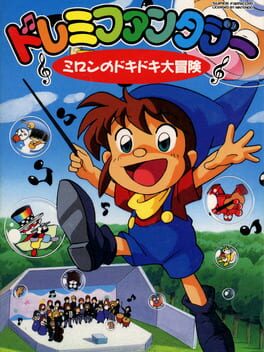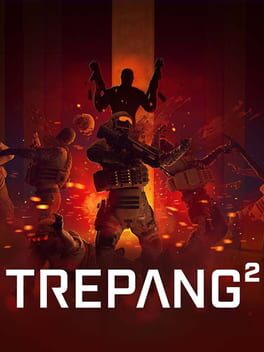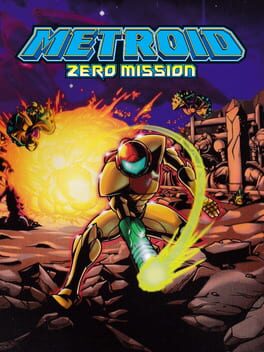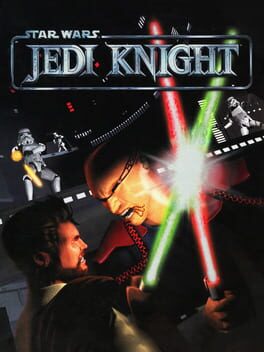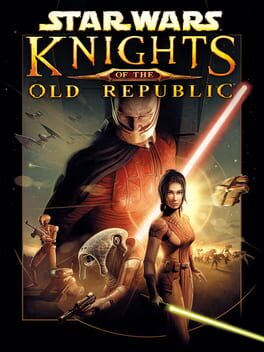VIDEOGAMES
I'm blown away by how excruciating this game is.
Everything about it is laborious, like a relic of the worst elements of 3D platformers made years prior, with none of the charm. The controls feel like you're swimming through molasses and had me double checking to make sure I didn't accidentally turn off game mode on my TV.
Lead designer George Andreas later stated they should have scrapped Kameo and started over, and I have to agree. Its troubled development really shows and it's hard to believe Rare could make a game this bad.
Everything about it is laborious, like a relic of the worst elements of 3D platformers made years prior, with none of the charm. The controls feel like you're swimming through molasses and had me double checking to make sure I didn't accidentally turn off game mode on my TV.
Lead designer George Andreas later stated they should have scrapped Kameo and started over, and I have to agree. Its troubled development really shows and it's hard to believe Rare could make a game this bad.
2003
Lost Kingdoms II is an ambitious sequel that has some cool ideas on how to open the gameplay up into a real-time action-adventure, but doesn't fully deliver on the new concepts.
There's a crazy amount of new cards, summon cards have been expanded to have multiple effects, and there are several potent card combos with unique effects you can discover. The expansion of the core card battling is pretty much all improved; it's a shame the switch from encounter-based combat trivializes such a large portion of the game.
While the open-world battling makes the entire game flow more seamlessly, it kills the more deliberate pacing and removes much of the challenge of the first game. Deck management and card restoration effects were crucial in the first game, but almost entirely irrelevant here. You are free to run past any encounter with practically no consequences.
Transformation cards are one of the more interesting new mechanics - transforming into monsters to fly across gaps, jump onto ledges, or break down walls - but are sadly rarely utilized for anything more than obtaining a few optional chests or items. The mechanics end up feeling undercooked and are just begging for more compelling level and puzzle design.
Overall, it is impressive From Software managed to make such a vastly different and still largely enjoyable sequel with such limited development time. With all the resources the studio has nowadays, one can't help but think of all the potential of a modern Lost Kingdoms III. Make it happen.
There's a crazy amount of new cards, summon cards have been expanded to have multiple effects, and there are several potent card combos with unique effects you can discover. The expansion of the core card battling is pretty much all improved; it's a shame the switch from encounter-based combat trivializes such a large portion of the game.
While the open-world battling makes the entire game flow more seamlessly, it kills the more deliberate pacing and removes much of the challenge of the first game. Deck management and card restoration effects were crucial in the first game, but almost entirely irrelevant here. You are free to run past any encounter with practically no consequences.
Transformation cards are one of the more interesting new mechanics - transforming into monsters to fly across gaps, jump onto ledges, or break down walls - but are sadly rarely utilized for anything more than obtaining a few optional chests or items. The mechanics end up feeling undercooked and are just begging for more compelling level and puzzle design.
Overall, it is impressive From Software managed to make such a vastly different and still largely enjoyable sequel with such limited development time. With all the resources the studio has nowadays, one can't help but think of all the potential of a modern Lost Kingdoms III. Make it happen.
Project Gotham Racing 3 has made me a racing game fan. Something about the addictive simplicity of this game finally made it all click, and I spent multiple late nights trying to master the challenges. Great soundtrack, and I found the cockpit view a particularly immersive way to play.
If this game was rushed for the launch of the Xbox 360, I'm excited to see what the sequel has to offer.
If this game was rushed for the launch of the Xbox 360, I'm excited to see what the sequel has to offer.
2023
Trepang2 wears its F.E.A.R. influence on its sleeve, cranking up the action to a ludicrously satisfying degree, but unfortunately fails to back it up with engaging level and mission design.
Frequent wide open areas and wave-based encounters feel more like you're playing on multiplayer maps than thoughtfully constructed levels. While there is a strong emphasis on mobility thanks to a generous slide move and the ability to bounce off enemies with a midair melee attack, the gameplay still shines best in tightly crafted corridors - something I'm left wishing this game had a lot more of.
Still, Trepang2 is a remarkably enjoyable shooter and it's easy to imagine how a tightened-up sequel could be something truly great.
Frequent wide open areas and wave-based encounters feel more like you're playing on multiplayer maps than thoughtfully constructed levels. While there is a strong emphasis on mobility thanks to a generous slide move and the ability to bounce off enemies with a midair melee attack, the gameplay still shines best in tightly crafted corridors - something I'm left wishing this game had a lot more of.
Still, Trepang2 is a remarkably enjoyable shooter and it's easy to imagine how a tightened-up sequel could be something truly great.
Much of the original game's intent is lost in translation, and the addition of a map and objective markers betrays a large part of what makes the NES game so compelling, but Zero Mission is an interesting design exercise if nothing else.
While it strikes a better balance between open exploration and handholding than its disappointingly patronizing predecessor Metroid Fusion, the edges have been sanded down to a fault. The easy breezy linear design offers practically no resistance; this game is the polar opposite of the brutally unforgiving NES original. However, there's no denying how meticulously designed and polished the game is on its own merits.
Zero Mission is a very good modernized Metroid experience, but the idea it's the definitive version of the first game is an insane notion.
While it strikes a better balance between open exploration and handholding than its disappointingly patronizing predecessor Metroid Fusion, the edges have been sanded down to a fault. The easy breezy linear design offers practically no resistance; this game is the polar opposite of the brutally unforgiving NES original. However, there's no denying how meticulously designed and polished the game is on its own merits.
Zero Mission is a very good modernized Metroid experience, but the idea it's the definitive version of the first game is an insane notion.
Inventive level design, top notch FMV-powered presentation, and a full Jedi arsenal elevates Dark Forces II above its already great predecessor.
While there are occasional snags on some less than intuitive moments, the level design is generally fantastic with plenty of verticality and well-executed platforming, and focus on objectives over keyhunting. Exploration is a joy as there's no shortage of secrets, and the environments simply look and and sound excellent. The addition of a lightsaber and force powers add a lot to the gameplay of standard missions, though the one-on-one duels are frankly better in concept than execution.
It may be easy to overlook nowadays, but Jedi Knight goes beyond being just a great Star Wars game for its time; it's one of the best shooter campaigns ever. Play it!
While there are occasional snags on some less than intuitive moments, the level design is generally fantastic with plenty of verticality and well-executed platforming, and focus on objectives over keyhunting. Exploration is a joy as there's no shortage of secrets, and the environments simply look and and sound excellent. The addition of a lightsaber and force powers add a lot to the gameplay of standard missions, though the one-on-one duels are frankly better in concept than execution.
It may be easy to overlook nowadays, but Jedi Knight goes beyond being just a great Star Wars game for its time; it's one of the best shooter campaigns ever. Play it!
Even if it wasn't such a beautifully polished and immensely satisfying action game, it would be difficult not to love for the mech customization alone.
There's tons of fun to be had experimenting with different builds and a massive variety of kick-ass weapons, which is usually the answer to any boss that might be destroying you on loop. For me, the solution was always more bazookas.
There's tons of fun to be had experimenting with different builds and a massive variety of kick-ass weapons, which is usually the answer to any boss that might be destroying you on loop. For me, the solution was always more bazookas.
Extremely accessible and a major step forward for cinematic storytelling in RPGs. It's easy to see why this blew people away as an original Xbox game.
Limited scale, simplistic combat, and lack of tactical depth are a disappointment coming from the Baldur's Gate series, and it doesn't reach the heights Mass Effect would achieve with a near-identical formula, but this game is still a solid RPG and a crucial stepping stone in BioWare's catalog.
Limited scale, simplistic combat, and lack of tactical depth are a disappointment coming from the Baldur's Gate series, and it doesn't reach the heights Mass Effect would achieve with a near-identical formula, but this game is still a solid RPG and a crucial stepping stone in BioWare's catalog.
